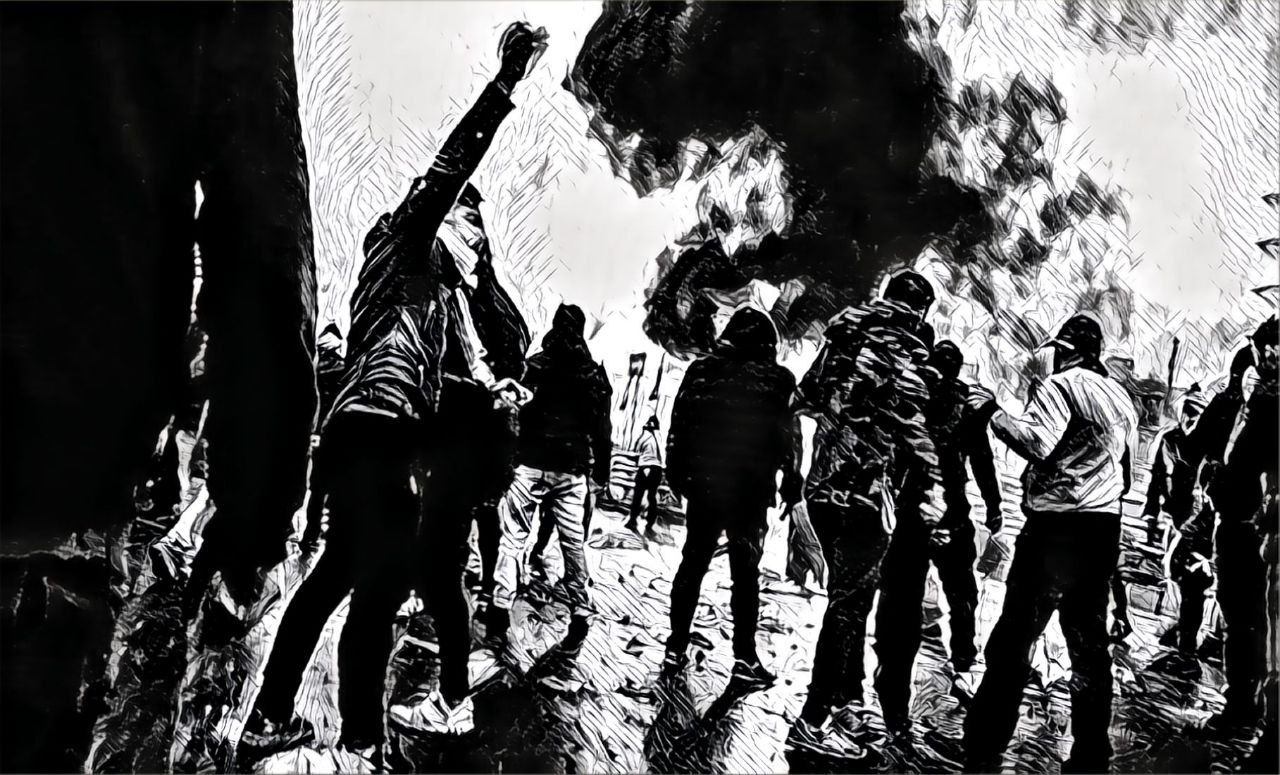Once, Ali Khamenei, the leader of the Islamic Republic, said that he would not “surrender to street challenges.” This was during the days of the Green Movement when the streets were filled with protesters, and the government’s response was an iron fist and the killing of protesters in the streets. Although people in various regions, from Baluchistan to Kurdistan and Khuzestan, had experienced such events during several decades of the Islamic fascist regime, it was the first time that the center experienced this level of suppression.
The Islamic Republic was caught off guard by the large crowd on the June 15, 2009. Unlike the regime’s street demonstrations, which were filled with crowds brought in by buses and trains from nearby cities, office closures, and forcing government employees to attend, this crowd was drawn to the streets by a collective sense of humiliation among a large number of citizens. 3 to 5 million people came to the streets in one day. In the Islamic Republic system, street protesting is not like in democratic countries where it’s a kind of carnival or street walk with coffee or beer in hand. If you survive from plastic bullets to ammunition and batons, at the very least, you face weeks of detention, and at the worst, long-term imprisonment or execution.
When the regime saw this enormous crowd that had come to the streets despite the threatening messages, it was astonished. Since then, the regime’s entire effort has been to prevent these passionate souls from ever gathering again as a united whole. From tear gas to bullets, from abduction to rape, every action arising from a corrupt system was dictated to prevent the capital’s streets from being conquered again in this way. Yet, the same regime that claimed that issues cannot be resolved through street demonstrations, whenever it organizes a rally with the mobilization of state resources, propagandizes, saying, “This is also a referendum! We have legitimacy!” Hypocritically, it deprives opponents of the opportunity to take to the streets through violence and militarization, and of course, it also denies them the ballot box and democratic means.
The issue is not that this government has no supporters; a percentage of citizens certainly accept this type of governance and express their loyalty in exchange for privileges and walking in the realm of dominance. Of course, in the free world, we know that this behavior is called slave behaviors, not citizen right.
However, the issue is that the majority and minority proportions have changed since the 1979 revolution. The ability to deceive and lie in the name of revolution and counter-revolution has evolved. At that time, the masses who overthrew the Shah’s regime changed their majority power with the oppression of the ruling minority, but soon realized that democracy was still absent; because the essential principle of democracy, even beyond respecting the majority vote, is the defense of minority rights, which had no place and still has no place in the ideology of the Islamic movement.
The young government of that time, which had obtained political power through brutal suppression of the revolution with the cooperation of the West and based on Orientalist foundations, denied minority rights, and today’s old and worn-out government denies the rights of the majority. That is why the officials of the Islamic Republic know that in any ballot box for a referendum or a free election—not in their showy displays—they will lose.
For this reason, they fear both the streets, as a place for free spirits and the will for change, and the free ballot box. Whether in the streets or in the ballot box, wherever there is freedom, the Islamic Republic is a disgraced loser. Hence, they want to substitute governmental funeral shows funded by the public treasury for the right to peaceful assembly and the right to freely choose the type of government. And this deception is not out of strength, but out of fear.
More absurd than the Islamic Republic itself are its supporters who say, “Look at our gatherings.” They compare gatherings funded by state resources and organized through governmental mobilization with those where bullets, tear gas, attacks by thugs, arrests, detentions, and even deaths are an inseparable part.
The response is clear: if they are confident about the number of their opponents, let them allow free assemblies. If they are proud of their majority, let them allow a referendum. Certainly, the Islamic Republic does not accept options that it envisions as its end. However, this refusal does not mean survival; rather, it means that the change will be more costly instead of less costly.
Dictators usually hear the voices too late or are simply uninterested in listening because they lack the understanding of true citizenship. Becoming a true citizen means valuing both one’s own rights and recognizing the rights of others.








